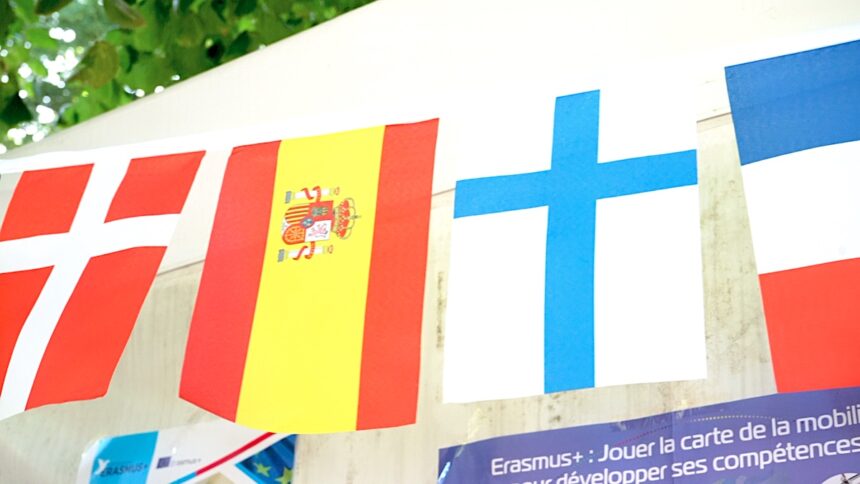The Erasmus+ France / Education Training Agency, through the Erasmus+ mobility programme, is positioning itself as a key player in the prevention and awareness of bullying in schools, in line with the new measures of the Ministry of National Education in force from September 2023.
The Erasmus+ programme supports educational projects related to health, the fight against discrimination and the role of students in the classroom. Participation in these projects encourages teachers to develop new ways of managing their classes, inspired by methods observed in partner institutions, thus preventing bullying situations in the school environment.
Inspired by good practice in Europe
Several European schools, including many French institutions, have decided to work together within the framework of Erasmus+ to raise awareness among their students about this current issue.
As part of our Erasmus+ project against cyberbullying with 5 primary schools in Europe, we discovered various programmes to prevent bullying, such as KiVa in Finland or Enable in Croatia.
Jean-Marie André, headteacher of Notre Dame school in Langueux (22)
In the Pays de la Loire, the FABAS project (Fight Against Bullying At School), involving 11 colleges, high schools, teacher training centres, including 2 rectories, from 5 different countries, has implemented tools and methods for preventing and resolving conflicts. The Viard nursery school in Sainte-Rose, Guadeloupe, was recently awarded the EITA prize (European Innovation Teaching Award 2023) by the European Commission on 25 September for its project « An innovative and healthy playground ».
The Erasmus+ partnership between a Romanian high school and a Guadeloupean primary school has allowed the implementation of concrete and effective actions to make the schoolyard a calmer place for the pupils, with lasting results.
Erasmus+ school projects, which unite the educational community through intercultural exchanges and the sharing of practices, have a positive impact on the climate within the institution, as highlighted in Note 16 of the Erasmus+ Observatory:
- 82% of projects contributed to reducing behavioural problems among students,
- 80% of respondents indicated that the projects improved student-teacher relations, cooperation and team spirit among students, as well as motivation to learn and interest in educational content.
A priority for the European Commission
The European Commission has set up an expert group on the subject. On 13 June, Oana Felecan, Erasmus+ policy officer, spoke at a meeting organised by Erasmus+ France / Education Training Agency and the Institute for Higher Education and Training (IH2EF).
Education professionals from 18 European countries were present to exchange ideas and propose new approaches to well-being at school. The programme included site visits, workshops and testimonies from Erasmus+ beneficiaries.
The Erasmus+ programme, with its main priorities of inclusion and diversity, ecological transition, digital transformation and civic engagement, supports numerous projects in school education, vocational education and training, higher education and adult education, promoting mobility and the emergence of innovative practices.
Source: Erasmus+ France / Education and Training Agency, press release of 27 September 2023.








